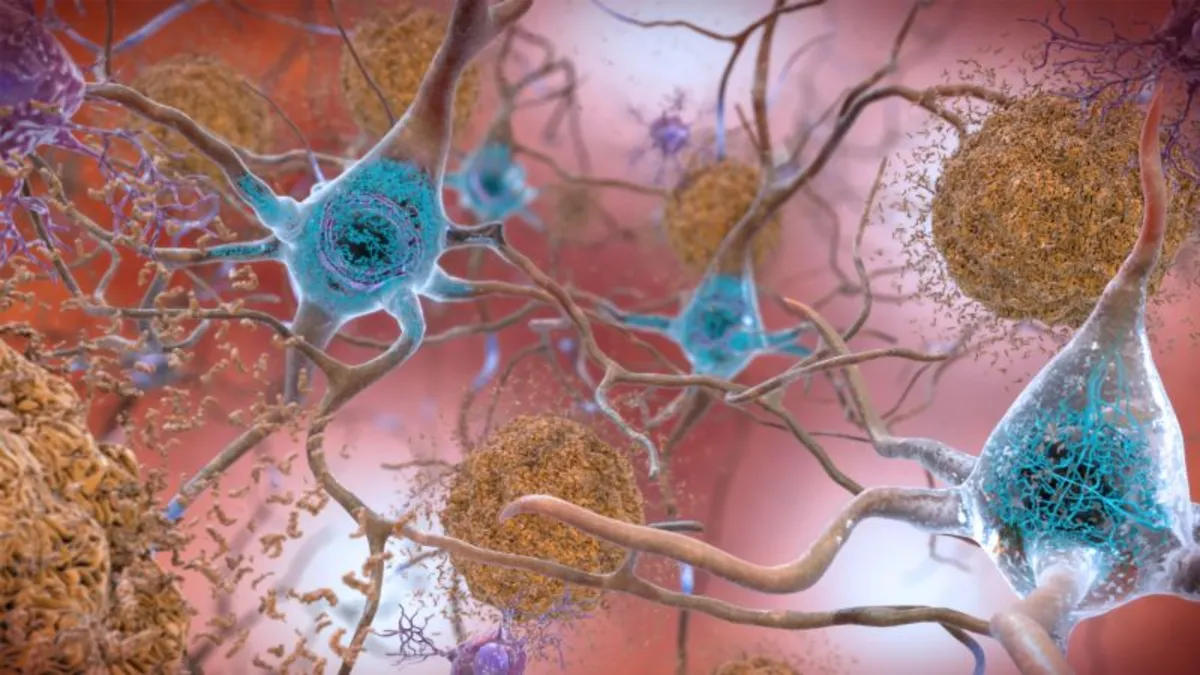
In a significant breakthrough, scientists have presented compelling evidence that utilizing a biologic drug to eliminate sticky beta amyloid plaques from the brains of individuals destined to develop Alzheimer’s dementia can potentially delay the onset of the disease. This groundbreaking study is part of a larger research initiative known as the Dominantly Inherited Alzheimer’s Network (DIAN), which focuses on a group of participants with rare genetic mutations that significantly increase their likelihood of developing Alzheimer’s.
The recent findings were published in the journal Lancet Neurology and represent a follow-up to a previous randomized-controlled trial that found no significant benefits from two amyloid-lowering therapies compared to a placebo. This new phase of the study included a small group of fewer than 30 participants and lacked a placebo control group, leading external experts to advise caution when interpreting the results. Despite these limitations, the outcomes are striking.
The research revealed that the risk of developing Alzheimer’s symptoms was halved for a specific subset of 22 participants who had been taking an amyloid-lowering drug called gantenerumab for an average of eight years and had not exhibited any memory or cognitive issues. While the results showed statistical significance in one analysis, they did not in others, raising questions among experts about the robustness of the findings.
Dr. Tara Spires-Jones, the director of the Centre for Discovery Brain Sciences at the University of Edinburgh, remarked that while the study does not definitively prove that Alzheimer’s disease onset can be delayed, the results are scientifically promising. Dr. Eric McDade, a professor of neurology at Washington University in St. Louis and the study's lead author, expressed optimism, stating that this is the first data suggesting a significant delay in the onset of Alzheimer’s symptoms, potentially extending the period before cognitive decline.
Dr. McDade emphasized the importance of starting therapy early and maintaining it over time. He noted that the study provides the longest-running data for patients who commenced treatment while symptom-free, suggesting that it could delay the initial onset of symptoms by several years.
Despite the optimistic findings, the research team faces significant challenges regarding funding. Meetings to review their grant from the National Institutes of Health have been canceled multiple times, putting the ongoing study, which began in 2008, at risk of losing critical funding. McDade highlighted the difficult position both the researchers and participants find themselves in, as the cessation of funding could lead to participants losing access to potentially life-saving drugs.
Researchers first discovered the link between beta amyloid plaques and Alzheimer’s in the 1980s. Since then, various biologic medications have been tested to remove these proteins from the brain, but results have often been disappointing. Previous late-stage clinical trials involving over 1,800 participants using gantenerumab showed a lack of significant benefit, leading many to consider it a failed drug. However, similar drugs like lecanemab (Leqembi) and donanemab (Kisunla) have received FDA approval for treating patients with mild Alzheimer’s symptoms.
Among the study participants is Sue, who has been part of the gantenerumab trial since 2012 after discovering her genetic predisposition to early-onset Alzheimer’s. At 61, she remains symptom-free and attributes her well-being to the ongoing treatment. Sue has undergone numerous medical tests and believes the drugs have delayed the onset of symptoms by several years, giving her hope for a future free from cognitive decline.
Another participant, Marty Reiswig, carries a gene mutation that leads to early Alzheimer’s symptoms in his family. He has embraced his role in the research, hoping to contribute to the understanding of the disease while managing his own fears about the future. Reiswig has seen his family members suffer from Alzheimer’s and is determined to continue his participation in the trial.
While the results from this study are preliminary and come with important caveats, they provide a glimmer of hope in the search for effective Alzheimer’s treatments. Experts stress the importance of continuing research to validate these findings and explore the potential benefits of amyloid removal in Alzheimer’s patients. Dr. Paul Aisen, director of the Alzheimer’s Therapeutic Research Institute, acknowledges the encouraging nature of the data, while Dr. Michael Greicius of Stanford University cautions that more substantial evidence is needed to determine the efficacy of the treatments.
As the scientific community continues to investigate the relationship between amyloid plaques and Alzheimer’s progression, the stories of participants like Sue and Marty exemplify the personal stakes involved in this critical research. Their dedication and resilience highlight the urgent need for funding and support to advance the fight against one of the world’s most devastating diseases.